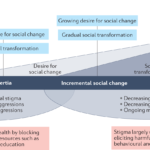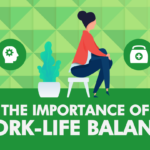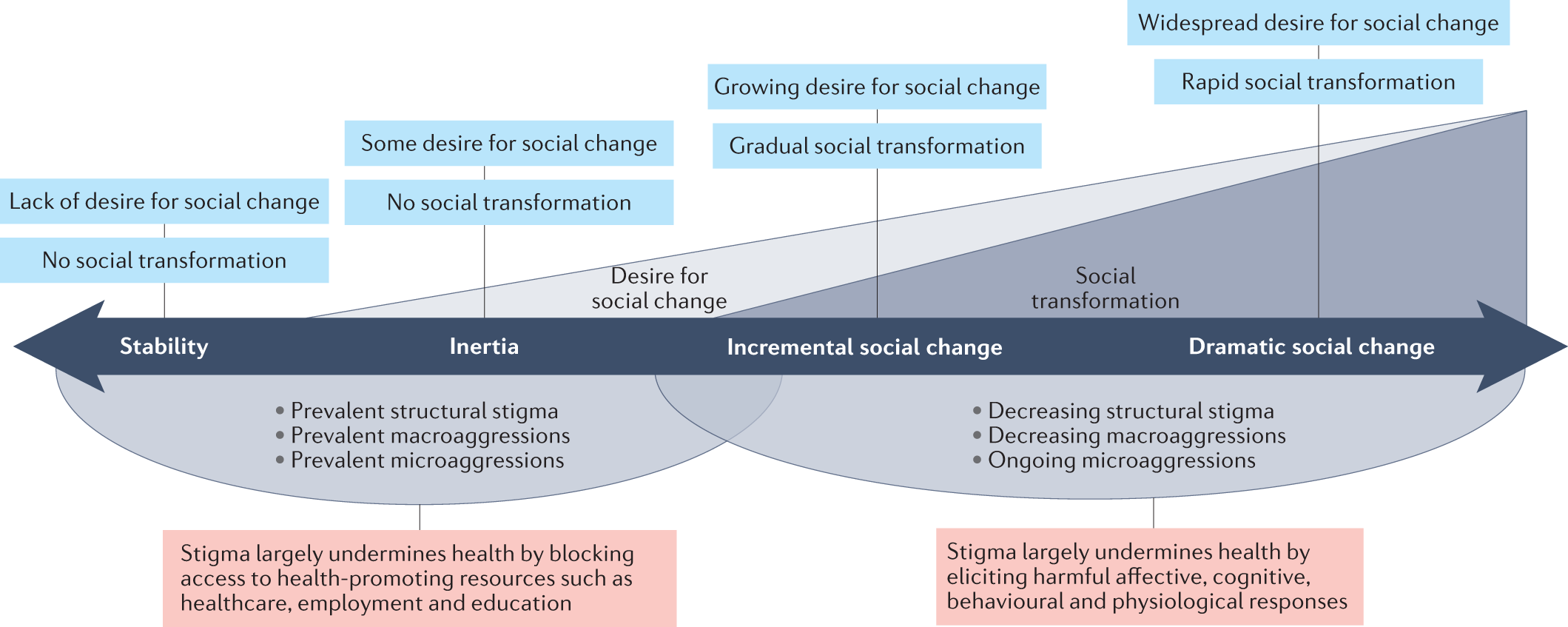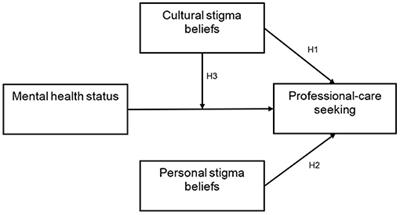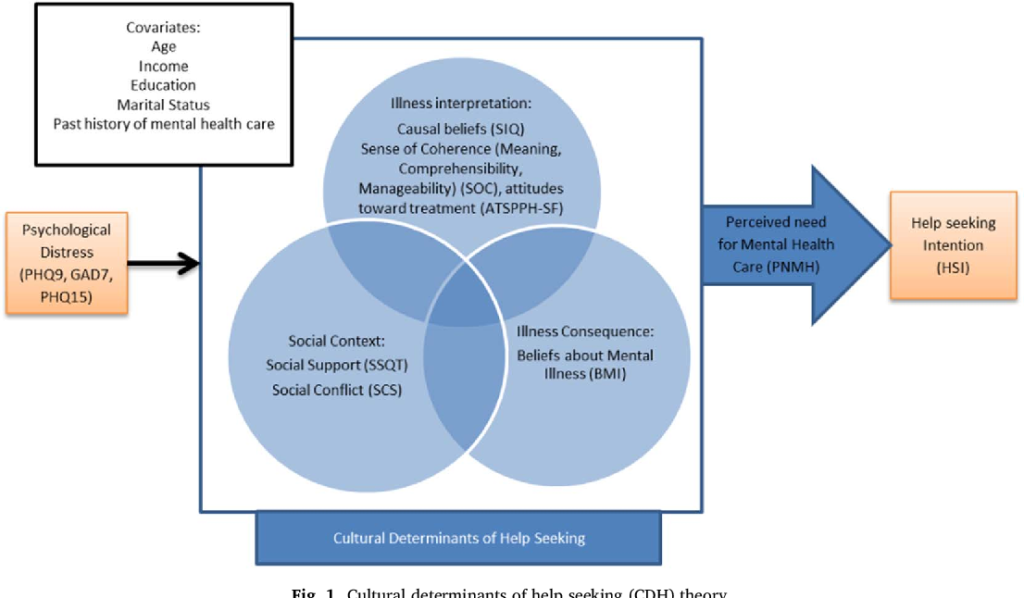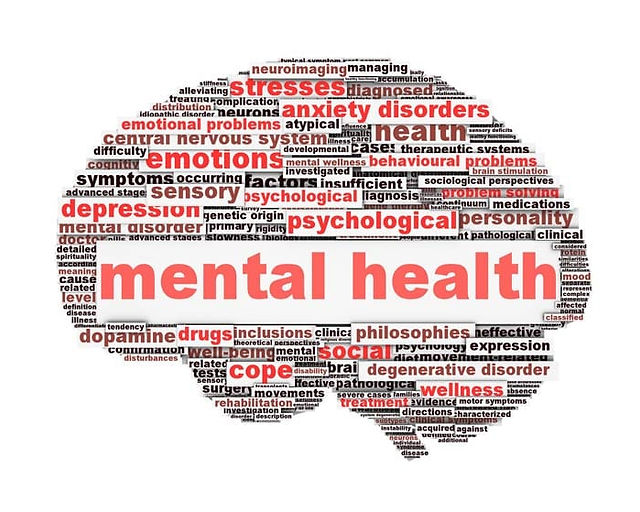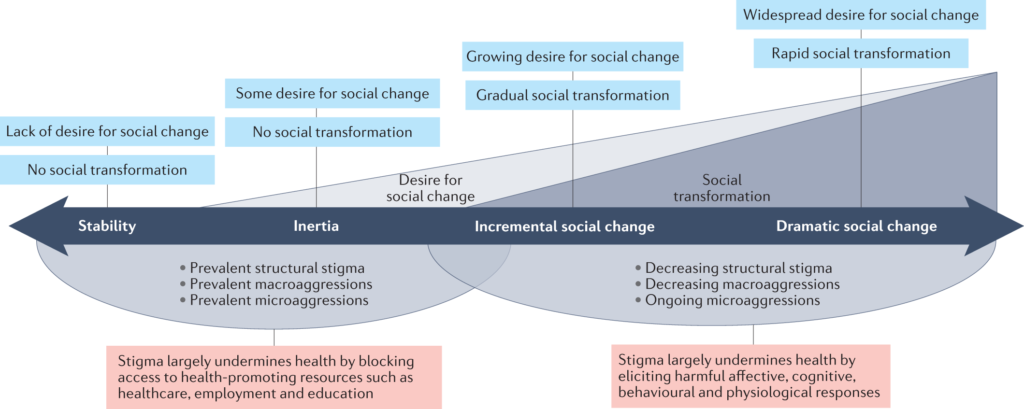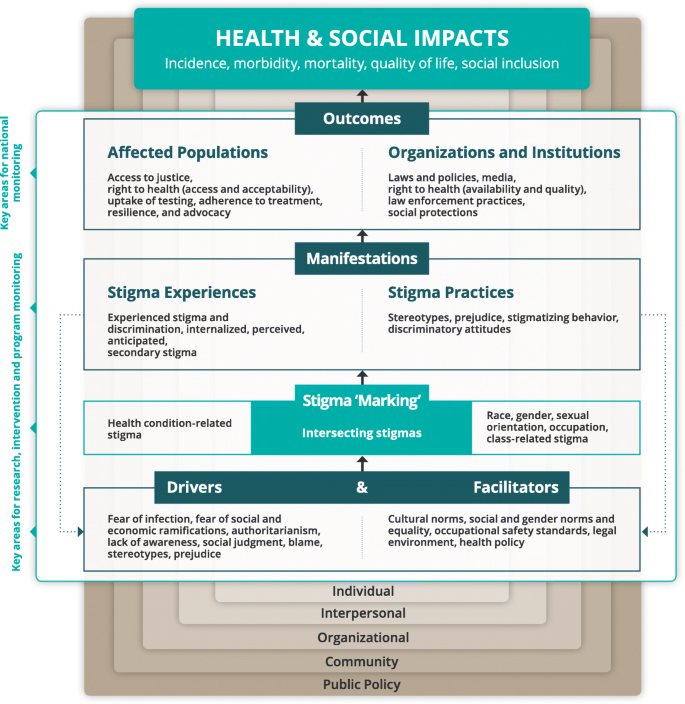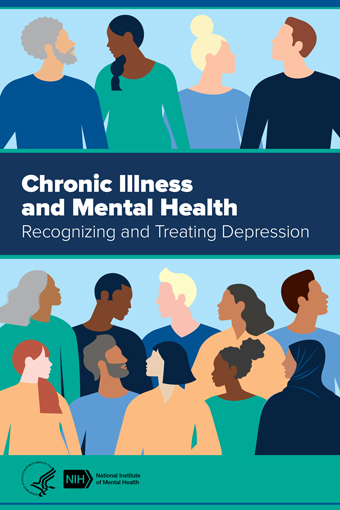In today’s fast-paced and interconnected world, where mental health awareness is on the rise, it is crucial to address the impact of cultural stigma on women’s mental health seeking behaviors. The expectations, judgments, and stereotypes embedded in different cultures can prevent women from openly discussing their struggles and seeking the help they deserve. This article explores the barriers imposed by cultural stigma, shedding light on the internal and external factors that hinder women from navigating the path towards improved mental well-being. By understanding these challenges, we can work towards creating a more inclusive and supportive environment where every woman feels empowered to seek help and break free from the shackles of cultural stigma.
Understanding Cultural Stigma
Defining Cultural Stigma
Cultural stigma refers to the negative beliefs, attitudes, and stereotypes that a society holds towards a particular culture or group. It can manifest in various ways, including discrimination, exclusion, and marginalization. Cultural stigma can be deeply rooted in societal norms, values, and traditions, shaping the perceptions and behaviors of individuals within that culture.
Different Cultural Perceptions of Mental Health
Different cultures have their own unique perceptions of mental health. While some cultures highly prioritize mental well-being and have well-established systems of support, others may view mental health issues as taboo or sign of weakness. Such cultural beliefs can heavily influence individuals’ attitudes towards seeking help for mental health issues.
The Role of Gender in Cultural Stigma
Gender plays a significant role in cultural stigma surrounding mental health. In many cultures, societal expectations and gender roles dictate that women should prioritize the needs of others over their own well-being. This can create a barrier for women in seeking help for their mental health concerns, as they may fear being stigmatized or labeled as “attention-seeking” or “weak.”
Impact of Cultural Stigma on Mental Health
Barriers to Seeking Help
Cultural stigma poses several barriers to women seeking help for their mental health issues. Women may fear judgment, discrimination, or exclusion if they disclose their struggles, leading to a reluctance to reach out for support. Additionally, cultural preferences for self-reliance and keeping personal matters within the family can deter women from seeking professional help.
Delay in Seeking Treatment
The cultural stigma surrounding mental health can also result in a delay in seeking treatment. Women may feel a sense of shame or embarrassment, causing them to ignore or downplay their symptoms. This delay can worsen their mental health condition and hinder their recovery in the long run.
Disapproval and Judgment
Cultural stigma often leads to disapproval and judgment towards individuals experiencing mental health issues. This disapproval can come from various sources, such as family, friends, and the wider community. Women may fear being labeled as “crazy” or “unstable,” leading them to hide their struggles and suffer in silence.
Self-Stigmatization
Cultural stigma can also lead to self-stigmatization, where individuals internalize the negative societal beliefs and stereotypes about mental health. Women may blame themselves for their struggles, believing that they are personally responsible for their condition. This self-blame can further erode their self-esteem and prevent them from seeking help.
Culturally Influenced Factors
Religious and Spiritual Beliefs
Religion and spirituality play a significant role in shaping cultural beliefs and values. These beliefs can influence how mental health issues are perceived within a culture. For example, some religious beliefs may view mental health problems as a result of spiritual or moral shortcomings, leading to a reluctance to seek help from mental health professionals.
Cultural Norms and Traditional Gender Roles
Cultural norms and traditional gender roles can perpetuate the stigma surrounding women’s mental health. In some cultures, women are expected to be caregivers and nurturers, often prioritizing the needs of their family and community over their own well-being. This societal expectation can discourage women from seeking help, as they may feel guilty or selfish for taking care of their own mental health.
Family and Community Expectations
Family and community expectations can heavily influence women’s willingness to seek help for their mental health issues. Some cultures prioritize maintaining a positive reputation and social standing, which may discourage women from openly discussing their struggles. Fear of bringing shame or burdening their family can prevent women from seeking the support they need.
Mental Health Literacy and Awareness
The level of mental health literacy and awareness within a culture can also impact women’s mental health seeking behaviors. Limited knowledge and awareness about mental health conditions may result in a lack of understanding and empathy towards those experiencing such issues. This lack of awareness can contribute to the perpetuation of cultural stigma and hinder women from seeking appropriate help.
Intersectionality of Stigma
Double Stigmatization of Minority Women
Women from minority backgrounds may experience double stigmatization, facing both sexism and racism in addition to cultural stigma surrounding mental health. These intersecting identities can compound the barriers and discrimination they face when seeking help, making it even more difficult to access appropriate mental health services.
Stigma Experienced by LGBTQ+ Women
LGBTQ+ women also face unique challenges and stigma surrounding their mental health. Cultural attitudes and biases towards sexual orientation and gender identity can lead to discrimination and rejection within their own communities. This stigma can create additional barriers for LGBTQ+ women in seeking help and support.
Impact of Socioeconomic Factors
Socioeconomic factors can intersect with cultural stigma to impact women’s mental health seeking behaviors. Limited financial resources, lack of health insurance, and inadequate access to mental health services can further exacerbate the barriers faced by women in seeking help for their mental health issues.
Role of Media and Entertainment
Portrayal of Mental Health in Media
The media plays a powerful role in shaping societal perceptions and attitudes towards mental health. The portrayal of mental health in media can either help to break down cultural stigma or perpetuate harmful stereotypes. Media representations that accurately depict mental health issues and promote empathy and understanding can contribute to reducing cultural stigma.
Stereotypes and Misrepresentation
Unfortunately, media and entertainment industries have often perpetuated harmful stereotypes and misrepresentation of mental health. Stigmatizing portrayals can reinforce cultural stigma and further marginalize individuals struggling with mental health issues. It is crucial for the media to be more responsible in their representation and challenge stereotypes surrounding mental health.
Influence on Women’s Help-Seeking Behaviors
Media and entertainment can influence women’s help-seeking behaviors by shaping their perceptions and attitudes towards mental health. Positive and accurate representations can encourage women to seek help, while stigmatizing portrayals can create distrust and fear. It is essential for media outlets to accurately depict mental health issues and showcase stories of resilience and recovery.
Cultural Stigma and Mental Health Services
Availability and Accessibility
Cultural stigma can hinder the availability and accessibility of mental health services. In some cultures, mental health is heavily stigmatized and not seen as a priority, resulting in limited resources and funding for mental health programs. This lack of availability and accessibility can create significant barriers for women in accessing much-needed support.
Lack of Culturally Competent Care
The stigma surrounding mental health can also lead to a lack of culturally competent care. Mental health professionals may not have adequate training or understanding of diverse cultural backgrounds, leading to potentially insensitive or ineffective treatment approaches. This can further perpetuate cultural stigma and deter women from seeking help.
Misdiagnosis and Mistrust
Cultural stigma can sometimes result in misdiagnosis and mistrust within the mental health system. Individuals may be hesitant to disclose their cultural background or experiences, fearing that it may contribute to biased assessments or inappropriate treatment. This mistrust can prevent women from seeking help or receiving accurate diagnoses and appropriate care.
Alternative Healing Practices
Some cultures may have their own traditional healing practices and beliefs around mental health. While these practices can be valuable and culturally significant, they may not always address the full spectrum of mental health needs. The cultural stigma surrounding mental health can discourage individuals from exploring alternative healing practices and seeking evidence-based treatments.
Overcoming Cultural Stigma
Promoting Cultural Sensitivity in Mental Health
Promoting cultural sensitivity in mental health is essential to overcome cultural stigma. Mental health professionals should receive training in cultural competence, enabling them to provide culturally sensitive care. Creating a safe and inclusive environment where individuals feel comfortable discussing their mental health struggles is crucial.
Education and Awareness Campaigns
Education and awareness campaigns aimed at reducing cultural stigma can play a vital role in empowering women to seek help for their mental health. Through these campaigns, cultural beliefs and myths surrounding mental health can be challenged, increasing knowledge and understanding within communities. Education should highlight the importance of seeking help and normalize conversations about mental health.
Advocacy for Policy Changes
Advocacy for policy changes can help address the systemic barriers that perpetuate cultural stigma. This can involve challenging discriminatory practices, increasing funding for mental health programs, and promoting culturally competent care. It is crucial to engage policymakers and advocate for policies that prioritize women’s mental health and foster inclusive services.
Community Support and Engagement
Building community support networks is essential in overcoming cultural stigma. Peer support groups, community organizations, and grassroots initiatives can provide spaces for women to share their experiences, receive support, and challenge cultural stigma together. Engaging community leaders and influencers can also help shift attitudes and promote acceptance.
The Importance of Intersectional Approaches
Recognizing Multiple Identities
Intersectional approaches acknowledge the intersecting identities and unique experiences of individuals. By recognizing that women may face multiple forms of discrimination and stigma, including those related to culture, gender, race, and sexual orientation, mental health services can be better tailored to meet their specific needs.
Addressing Unique Challenges
Addressing the unique challenges faced by women at the intersection of cultural stigma and other forms of oppression is crucial. Mental health services should consider the diverse experiences and needs of women from different cultural backgrounds, ensuring that support is inclusive and culturally sensitive.
Collaboration Across Fields
Overcoming cultural stigma requires collaboration across various fields, including mental health, social work, education, and policy. By working together, professionals from different disciplines can share knowledge, challenge cultural stigma, and develop holistic approaches to women’s mental health.
Personal Empowerment and Self-Care
Building Resilience and Coping Mechanisms
Personal empowerment plays a crucial role in overcoming cultural stigma. By building resilience and developing healthy coping mechanisms, women can navigate the challenges posed by cultural stigma and prioritize their mental health. This may involve learning mindfulness techniques, engaging in self-reflection, and seeking emotional support.
Compassionate Self-Acceptance
Compassionate self-acceptance involves cultivating self-compassion and challenging negative self-judgment. It is essential for women to recognize that their mental health struggles are valid and deserving of support. This self-acceptance can counteract the self-stigmatization that cultural stigma often perpetuates.
Seeking Supportive Networks
Seeking supportive networks is essential for women to combat cultural stigma and seek help for their mental health. Building connections with individuals who understand their experiences and provide non-judgmental support can empower women to overcome cultural barriers and access appropriate resources.
Utilizing Online Resources
Online resources can be a valuable tool for women seeking help for their mental health in cultures where stigma is prevalent. Online platforms provide anonymity and allow women to access information, support groups, and mental health resources remotely. Utilizing such resources can help overcome cultural barriers and provide a sense of community.
Future Directions and Research
Studying Cultural-Specific Stigmas
Future research should focus on studying the cultural-specific stigmas surrounding mental health. By understanding the unique cultural factors contributing to stigma, interventions can be developed that specifically target and challenge these beliefs.
Evaluating the Effectiveness of Interventions
There is a need for further evaluation of interventions aimed at reducing cultural stigma and promoting help-seeking behaviors among women. Research should assess the effectiveness of education campaigns, community initiatives, and policy changes in challenging cultural stigma and improving mental health outcomes.
Expanding Mental Health Services
Expanding mental health services to be more culturally sensitive and inclusive is crucial. This includes increasing the availability and accessibility of services for women from diverse cultural backgrounds, as well as training mental health professionals to provide culturally competent care.
Embracing Diversity in Research
Future research should embrace diversity by including individuals from various cultural backgrounds. By ensuring diverse representation, research findings can better inform the development of interventions and programs that address the unique needs and experiences of women across cultures.
